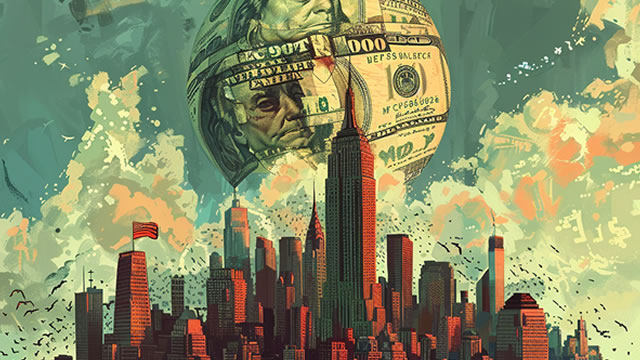Central Bank Policymakers Warn of Inflation Risks Amid Trade Uncertainty
In the past few days, several central bank policymakers have voiced concerns over the uncertainty surrounding tariffs and their potential impact on inflation. One of the latest voices to join the chorus is Chicago Fed President Austan Goolsbee.
Goolsbee’s Concerns
Speaking at an event in Chicago, Goolsbee highlighted a number of supply chain threats that could contribute to inflation if trade tensions escalate. He stated, “Large tariffs and the potential for an escalating trade war could lead to disruptions in global supply chains, which could result in higher prices for consumers.”
Impact on Consumers
According to a report by the Federal Reserve Bank of St. Louis, tariffs can lead to higher prices for consumers by increasing the cost of imported goods. The report states, “When tariffs are imposed on imported goods, the prices of those goods typically increase because the cost of production goes up.” This can lead to a ripple effect, as higher prices for imported goods can lead to higher prices for goods made with those components or raw materials.
- Higher prices for consumer goods: Tariffs on imported goods can lead to higher prices for consumers. This can be especially true for goods that have a large import content, such as electronics and automobiles.
- Higher prices for raw materials: Tariffs on raw materials can lead to higher prices for finished goods. For example, tariffs on steel and aluminum can lead to higher prices for cars, appliances, and construction materials.
- Reduced consumer spending: Higher prices for goods and services can lead to reduced consumer spending, as consumers have less disposable income to spend on other things.
Impact on the World
The impact of tariffs on inflation and the economy is not limited to the United States. According to a report by the International Monetary Fund (IMF), global trade tensions could lead to a decrease in global growth, with developing economies being particularly vulnerable.
- Global economic slowdown: The IMF reports that “trade tensions could lead to a significant slowdown in global growth, with the largest impact on emerging and developing economies.” This could lead to higher inflation in these countries as demand for their exports decreases.
- Higher prices for commodities: Tariffs on imported goods can lead to higher prices for commodities, as demand for these goods decreases. This can lead to higher inflation in countries that produce and export these commodities.
- Reduced global cooperation: Trade tensions can lead to reduced global cooperation and increased geopolitical tensions. This can lead to a decrease in trade and investment, which can lead to higher inflation in the long run.
Conclusion
Central bank policymakers have expressed concerns over the uncertainty surrounding tariffs and their potential impact on inflation. Chicago Fed President Austan Goolsbee is just the latest to join the chorus, warning of the potential for disruptions in global supply chains and higher prices for consumers. While the impact of tariffs on inflation is not limited to the United States, the impact on consumers and the global economy is a cause for concern.
As the trade situation continues to evolve, it is important for consumers and businesses to stay informed and prepared for potential price increases. This may include diversifying supply chains, stockpiling essential goods, and seeking out alternative suppliers. By taking a proactive approach, we can mitigate the impact of tariffs and maintain economic stability in the face of uncertainty.





